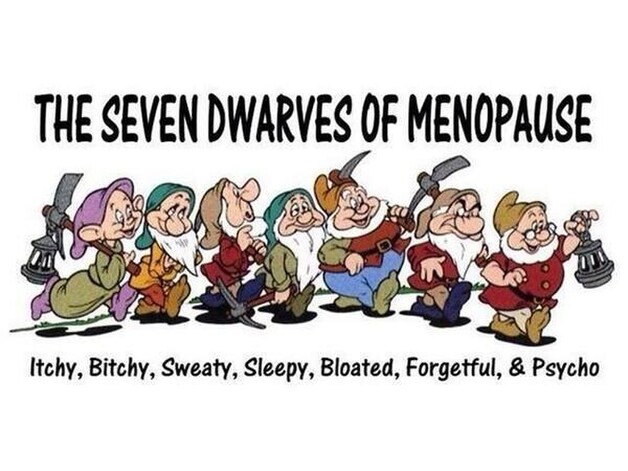Menopause is a natural stage of life and not a disease, often it has been viewed as a taboo subject but we are now speaking up and looking for natural strategies to help with some of the common symptoms such as hot flashes, insomnia, brain fog, anxiety, palpitations, loss of libido...the seven dwarves of menopause.
We will explore how diet, stress and gut health can impact our experience.
Perimenopause can occur 2 to 8+ years before periods cease, ovulation and periods become irregular and often where the common symptoms arise.
These symptoms can creep up on us, in our busy work, home and social lives we can often ignore them or not even realise, just putting it down to stress, overworked, not enough sleep. I often hear clients say “I just don’t feel like myself anymore”
How stress impacts menopausal symptoms?
During the menopausal transition, the ovaries stop ovulating and decrease their production of progesterone and oestrogen. During this time the adrenal glands are meant to pick up the slack. Our adrenal glands are responsible for making stress hormones like cortisol, adrenaline, aldosterone and in our constant on the go lives our adrenals can become depleted so unable to help in making the sex hormones. Starting to look after ourselves and finding ways to manage our stress levels can help considerably with menopausal symptoms. Easier said than done, right? Here are a couple of ideas..
- Try to set boundaries and reduce the number of things you say “yes” to
- Schedule in some meditation or deep breathing exercises, just 5 minutes a day can make all the difference
- I like to use flower remedies with my clients for emotional support, walnut is often my go to - helps manage our way through times of change
- Make a brew (try our lemonbalm recipe)
- Exercise to release those happy endorphins. yoga, tai chi and qi gong as well as some impact exercises such as running and walking to help those bones. As oestrogen drops so can our bone density. Take a walk in nature..forest bathing
Herbal support
I work with my clients to prepare a herbal mix that is bespoke to their needs.
Some of the key herbs that may be used are- Salvia officinalis (sage) - reduces hot flashes, settles the nervous system, helps memory
- Vitex agnus-castus (chaste berry) - helps balance progesterone levels
- Cimicifuga racemosa (black cohosh) - helpful for night sweats, insomnia, irritability, headaches, vaginal dryness
- Trifolium pratense (red clover) - reduces symptoms, supports bone density, protects cardiovascular and immune systems
- Maca - improves libido
Omega oils & menopause
Essential fatty acids (EFA) are building blocks of hormones, they play a role in hormone transport and also have a positive effect on hormone receptor sites so that fewer are required for correct response. The essential fatty acid omega-3 oil can help ease hot flushes and improve mood. Sea Buckthorn oil not only contains omegas 3,6 &9, it is the richest source of omega-7, this EFA is essential for protective linings of internal organs so helps relieve vaginal dryness and improves structure.
Sources of EFAs:
- Oily fish such as salmon, sardines, mackerel
- Flaxseed
- Chia seeds
- Spinach
- Eggs
- Hemp seed oil
- Sea Buckthorn oil
Alternatively you can take an omega supplement and vegan options are available. One word of caution, the quality of fish oil capsules can vary widely and would recommend talking to your naturopath for advice on what to use.
How does gut health relate to menopause?
Emerging research shows that the gut microbiome plays a key role in hormone regulation, including oestrogen. The gut microbiome are the trillions of micro-organisms that live in your digestive tract - think friendly and sometimes unfriendly bacteria.
Specific bacteria in our gut are thought to metabolise oestrogen and modulate oestrogen levels, converting the hormone to its active form to then be able to circulate in the blood to reach other tissues in the body.
Maintaining a healthy gut microbiome can also improve mood and lift the brain fog.
How do I get my gut happy?
Fibre - focus on dietary fibre through fruit and veg, whole grains, nuts, seeds & pulses. Fibre is known as a prebiotic which feeds those micro-organisms in our guts, keeping them happy.
Probiotics - various strains of Lactobacillus are proving to be effective in improving the gut microbiome so consider a probiotic supplement to get that gut in balance.
Remember perimenopause & menopause need not be overwhelming, it is about helping our bodies through the transition and re-framing our view on this new phase in our lives.
If you would like to find out more about how naturopathy & herbs can help with perimenopause & menopause contact me for a free 15 minute consultation.

